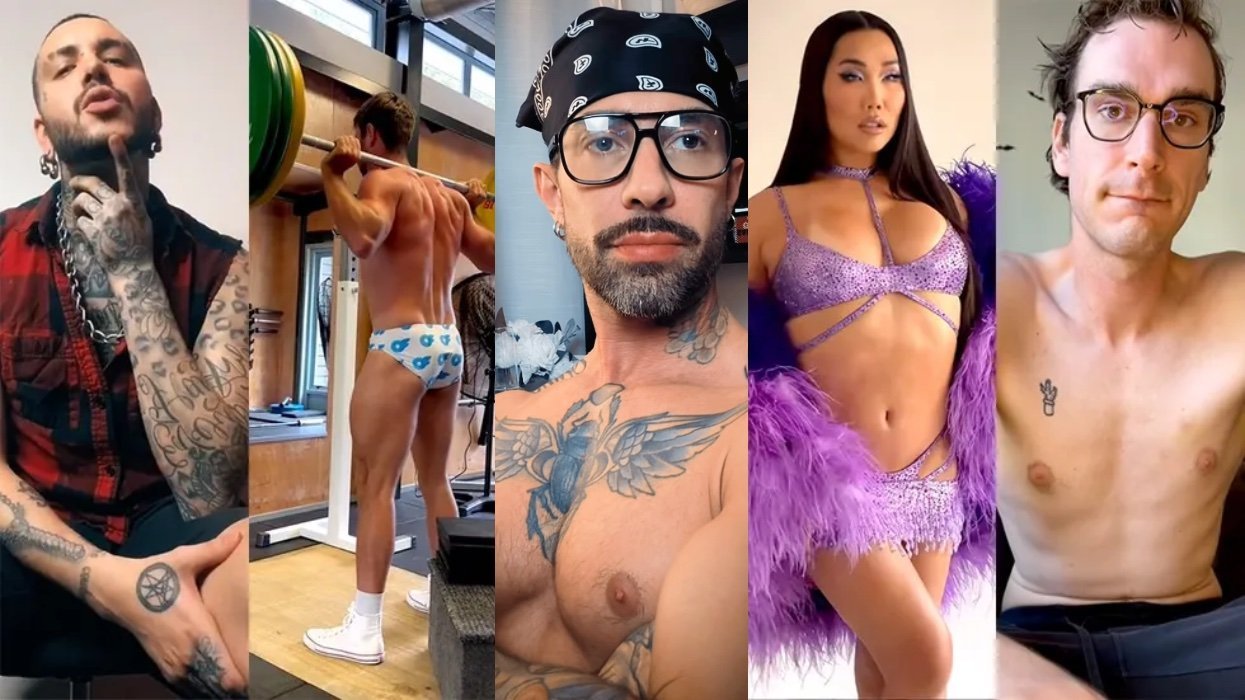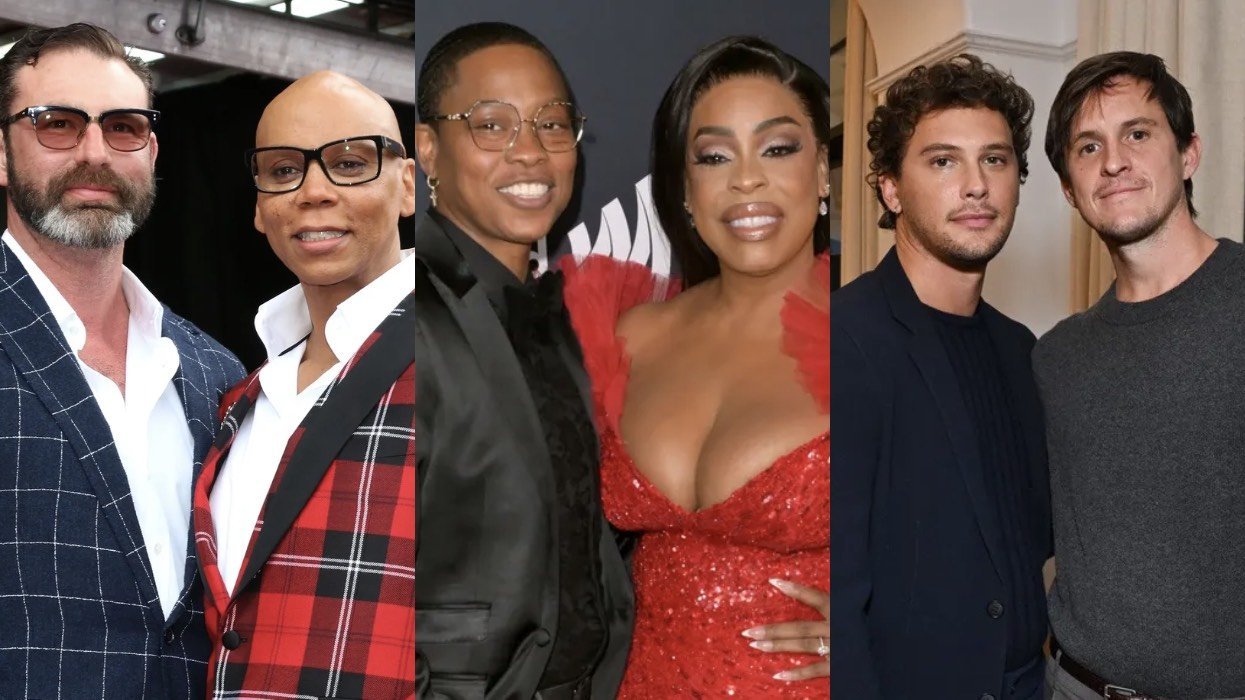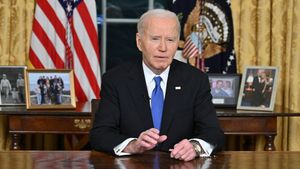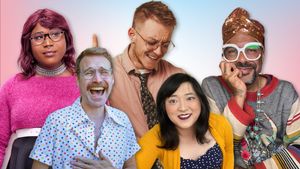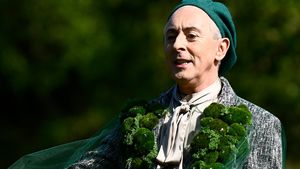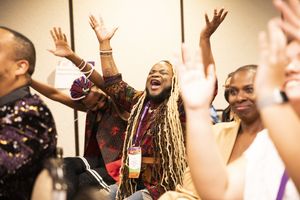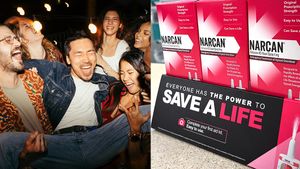To date, more than 230, 000 African Americans have died of AIDS.
According to the Centers for Disease Control (CDC), 1 in 22 African Americans will be diagnosed HIV-positive in their lifetime. And, it’s the leading cause of death among African American women between the ages of 25-34 and African American men between the ages of 35-44.
The inception of World AIDS Day began, many would say, when the world was in need of prayer. But that was all we had at the time.
In 1988, the World Health Organization designated Dec. 1 as the day to pause and reflect on the magnitude of the devastating effect this disease was having on domestic and global communities.
Because there is still neither a vaccine nor a cure, a prayer is sometimes all a person thinks he or she has in the face of an epidemic that shows no sign of abating.
But in 2010 we can do more than just pray now. We can act!
“ If we don’t work together to stop the spread of HIV/AIDS in our community, then who will? Let’s take matters into our own hands and stop the spread of the epidemic. It is a new day,” Roslyn M. Brock, Chairman, NAACP National Board of Directors, wrote in an open letter in November to the Harvard University Center for AIDS Research two-day symposium “The Forgotten Epidemic: HIV/AIDS Crisis in Black America.”
The symposium examined the increasingly critical HIV/AIDS epidemic in Black America. This symposium was the first in what will be a series of meetings, exploring how and why HIV/AIDS has become an overwhelmingly Black disease in the United States.
According to the Black AIDS Institute’s August 2008 report titled “Left Behind” the number of people living with HIV in Black America exceeds the HIV population in seven of the fifteen focus countries in the U.S. President’s Emergency Plan for AIDS Relief (PEPFAR) initiative, an initiative helping to save the lives of those suffering from HIV/AIDS around the world in countries like Haiti, Dominican Republic, India, South Africa, to name a few.
In other words, if black America were its own country, standing on its own like Haiti or Nigeria, black Americans would rate 16th with the epidemic in the world. And the epidemic is heavily concentrated in urban enclaves like Detroit, New York, Newark, Washington, D.C and the Deep South.
There are many persistent social and economic factors contributing to the high rates of the epidemic in the African American community- racism, poverty, health care disparity, violence, to name just a few, but the biggest attitudinal factor still contributing to the epidemic and showing no sign of abating is homophobia.
While we know that that epidemic moves along the fault lines of race, class, gender and sexual orientation, and that HIV transmission is tied to specific high-risk behaviors that are not exclusive to any one sexual orientation, homophobia still continues to be one of the major barriers to ending the AIDS epidemic.
more on next page...
\\\
(continued)
And although famous HIV-positive heterosexual African Americans, like tennis great Arthur Ashe, news anchorman Max Robinson, and rapper Eazy all died of AIDS, and basketball giant Earvin “Magic” Johnson, who is still living with the virus, highlight the fact that anyone can contract the virus, many still see the epidemic as a “white gay disease,” suggesting being gay or having sex with someone of the same gender puts you immediately at high risk.
One of the reasons, in my opinion, is how data from the Centers for Disease Control (CDC) is read and reported on the epidemic perpetuates the confusion.
For example, "MSM," is the CDC clinical control-coined acronym for "men who have sex with men,” but it should not be used to depict openly gay or bisexual men individually or collectively. And the controversial term "Down Low" (DL) wrongly accusing black MSMs for spreading the virus throughout the African American heterosexual community should not be used to depict openly gay or bisexual men individually or collectively.
But many conflate the subgroups to be a synonym for “MSMs.” So when the CDC puts out the data that MSM of all races remain the group most severely affected by HIV, and white MSMs account for the largest number of annual new HIV infections of any group in the U.S., followed by MSMs of African descent, many in the African American community still think of the epidemic as a “white gay disease.” And with more than 18,000 people with AIDS still dying each year in the U.S. where gay, bisexual and MSM represent the majority of persons who have died, the homophobia stays in place.
While the data may be accurate about this subgroup of men in the African American community, the story is, at best, incomplete, and, at worse, intentionally skewed.
Although awareness of HIV/AIDS in anemic throughout communities of the African diaspora, it is gay, bisexual and MSM who are more easily identified with having the virus because they have been and are continually tracked in CDC studies; thus, there is more data on these groups.
But the truth is this: while nearly 600,000 African Americans are living with HIV, and as many 30,000 newly infected each year, there is still within the black community one in five living with HIV and unaware of their infection; and, they are disproportionately heterosexuals.
As long as we continue to think of HIV/AIDS as a gay disease, we’ll not protect ourselves from this epidemic.
Follow SheWired on Twitter!
Follow SheWired on Facebook!
Be SheWired's Friend on MySpace!











































